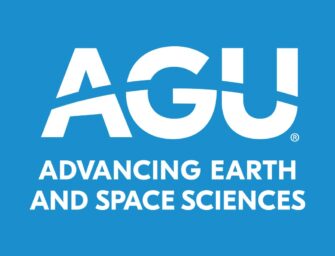Share your comments on AGU position statements on education
AGU’s new strategic plan sets the vision for the future of Earth and space sciences, and recognizes the need to inspire, educate and empower the next generation of scientists.
Part of achieving this vision is recognizing the need for Earth and space science to be taught throughout the educational experience, and for students to be exposed to high-quality, scientifically accurate information on evolution and climate change.
AGU’s position statements on education and academia were recently updated by a task force of experts to reflect the community’s stance on these key issues, as part of the recurring four-year process. These position statements inform AGU’s stance on timely policy issues, and are referenced by the media, policymakers, and other Earth and space science organizations.
AGU is now seeking your comments on these two updated statements. The task force relies on comments by members to finalize the draft statements, which are then approved by AGU’s Board and Council. This is your opportunity to help shape AGU’s stance on these important issues.
One statement articulates “The Importance of Exploring Earth and Space Sciences (ESS) Throughout the Educational Experience.” The statement lays out AGU’s support for a global effort to increase ESS literacy through the accelerated inclusion of accurate, comprehensive, and rigorous ESS into all parts of formal and informal education.
The second statement conveys that “Teaching Evolution and Climate Change is Essential to Understanding our Past and Shaping our Future.” It communicates AGU’s support of high quality, scientifically accurate, inclusive teaching of climate change and evolution as central elements of education for all.
Please ensure your voice is heard on these important issues by reviewing the updated position statements and providing comments by 30 April.



our organization should form a “super ” advocacy group with any and all scientific societies, including medical specialty societies, the mathematics and physics communities and all STEM societies that are willing to collaborate to bring trust , respect and credibility back to ALL Science… every discipline representing scientific organizations, including my own, which is the American Academy of Neurology have put out similar mission statements., in not in the same words, in the same spirit… undoing the damage that the previous administration has done will be difficult, long and require continuous effort. But we have to take the advise from social scientists and psychologists, who are all very much on our side too, that confronting disinformed people with logic and facts does not sway them, but makes them dig in their heals even harder… The methods that these people can be reached have been published widely, including in Scientific American, who also supports our goals in nearly the same language…. let all of science gently push back without arousing passions…. and in the meantime make we are all committed across all disciplines scientific. thank you, Steve Hata MD
There maybe should be an emphasis on teaching the basic principles of the scientific method to elementary school pupils. Not equations or complicated diagrams and figures, but the emphasis should be on the importance of objective analysis of evidence, and how not to trust subjective opinions. Well illustrated important examples would obviously include geophysics, evolution, astronomy, biology and medicine. By high school, many false narratives have taken root and are that more difficult to counter.
AGU – one of the greatest scientific organizations in the world, where gathers scientists from different fields of Earth sciences to share breaking thoughts, innovations, and stage-of-the-art information;
Also, a place to convey meaningful messages: We live in a “flat world” in which information is equally accessible and opportunities are fairly distributed, and where colours, religions, nationalities, and genders have no bearing.
My concern is that damage caused by natural disasters is sometimes erroneously attributed to climate change, when the actual cause is bad land use policy that in turn is caused by politicization of the insurance markets. I refer to coastal and flood plain development, which is enabled by government insurance programs that charge premiums below market rates.
Perhaps the AGU could take more interest in the economics/perverse incentives of questionable land use decisions.